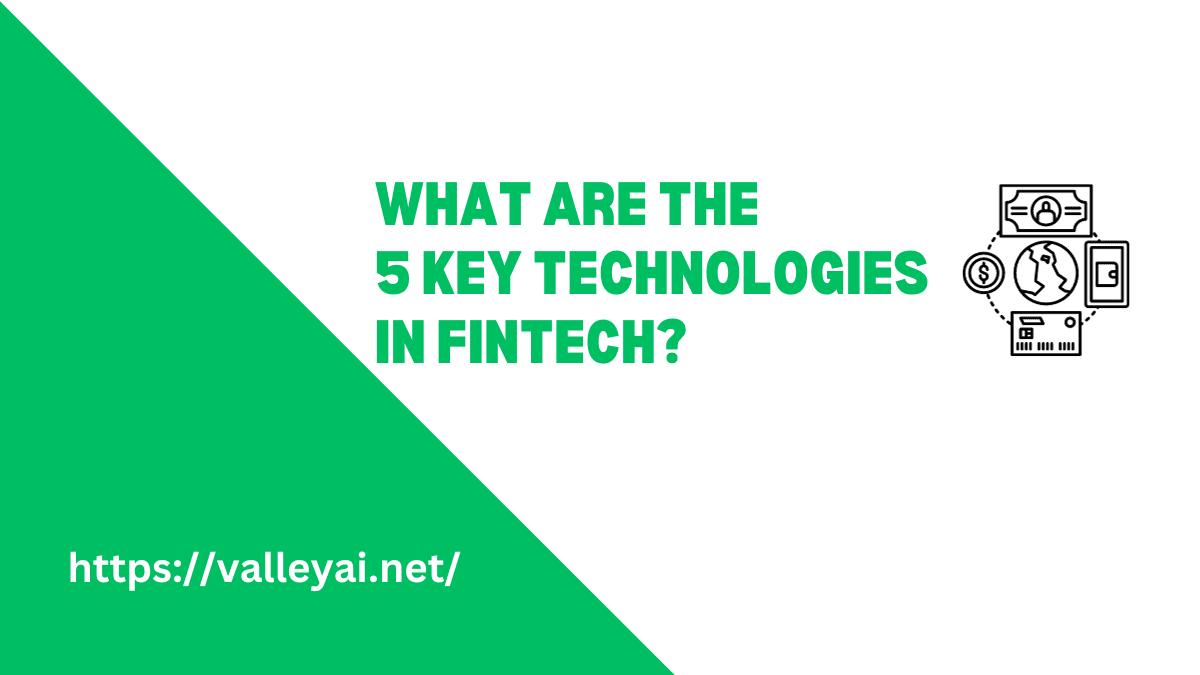In today’s rapidly evolving financial landscape, staying informed about the latest technological advancements is crucial. As financial technology, or fintech, continues to reshape traditional banking and investment practices, understanding its key components becomes essential.
This FinTech article explores the five pivotal technologies driving innovation in the financial sector. From blockchain’s transformative potential to artificial intelligence’s data-driven insights and mobile payment solutions’ convenience to the efficiency of robotic process automation and the critical importance of cybersecurity,
This article provides a comprehensive overview of the technologies shaping the future of finance. Let’s explore five key technologies in fintech.
Blockchain and Cryptocurrency
Blockchain and cryptocurrency are pivotal technologies within fintech, becoming indispensable components in the financial landscape. In the context of fintech, comprehending these innovations is paramount.
Blockchain, a decentralized ledger technology, underpins cryptocurrencies like Bitcoin and Ethereum. Its impact extends beyond digital currencies, enabling secure, transparent, and tamper-resistant record-keeping in various financial applications.
People in fintech explore how blockchain disrupts traditional financial intermediaries, reducing costs and expediting transactions while enhancing trust and traceability.
Cryptocurrencies, conversely, serve as digital assets that can revolutionize payment systems. A fintech delves into the mechanics of cryptocurrencies, examining their role as a resource for saving money, a means of exchange, and a measure of value.
This technology empowers students to explore cutting-edge fintech applications, such as decentralized finance (DeFi) platforms and non-fungible tokens (NFTs), while addressing regulatory and security considerations.
Understanding blockchain and cryptocurrency is essential for aspiring fintech professionals, as these innovations continue to reshape the financial industry and drive innovation across the globe.
Artificial Intelligence and Machine Learning
In financial technology, artificial intelligence and machine learning have become crucial technologies, or fintech, transforming how financial institutions do their business and interact with customers.
These technologies empower financial organizations to harness vast amounts of data for predictive analysis, fraud detection, and personalized customer experiences. AI algorithms can sift through troves of data to identify trends, assess risks, and make real-time decisions, optimizing investment strategies, credit assessments, and even customer service chatbots.
Moreover, ML algorithms continually learn from data, adapting and improving their accuracy over time, which is invaluable in an ever-evolving financial landscape.
In fintech, AI and ML are also vital for risk management. These technologies enable institutions to monitor transactions in real-time, promptly identifying anomalies and potential threats.
Additionally, they enhance compliance efforts by automating the tracking of regulatory changes and ensuring that financial processes align with the latest standards. AI-driven robo-advisors have also gained popularity, serving a larger clientele with affordable investment guidance and portfolio management services.
AI and ML are poised to drive innovation and efficiency in fintech, enabling better decision-making, enhanced customer experiences, and a more secure financial ecosystem.
Mobile Payment Solutions
- NFC Technology: Near Field Communication enables contactless payments by allowing smartphones to communicate with point-of-sale terminals, making transactions faster and more secure.
- QR Code Payments: QR codes have become ubiquitous in fintech, facilitating transactions by scanning codes with a smartphone camera, providing a simple and efficient payment method.
- Biometric Authentication: Mobile payments are made more secure thanks to fingerprint and face recognition technologies, ensuring that only authorized users can complete transactions.
- Mobile Wallets: Apps like Apple Pay, Google Pay, and Samsung Pay store payment information securely, streamlining the checkout process and promoting cashless transactions.
- Peer-to-Peer (P2P) Payments: Platforms like Venmo and PayPal enable sending money to friends and relatives instantly, simplifying person-to-person transactions.
- Mobile payment solutions have revolutionized the fintech industry, offering convenience, security, and efficiency to consumers and businesses alike.
Robotic Process Automation (RPA)
Robotic Process Automation (RPA) is a pivotal technology in fintech, streamlining operations and enhancing efficiency. Here are key pointers illustrating its significance:
- Automation Efficiency: RPA employs software robots to automate repetitive tasks, like data entry and reconciliation, significantly reducing errors and speeding up processes.
- Cost Reduction: By automating manual tasks, RPA slashes operational costs, making it an attractive solution for financial institutions aiming to optimize their workflows.
- Enhanced Accuracy: RPA ensures high precision, mitigating risks associated with human errors, a critical factor in financial transactions and compliance.
- Data Integration: RPA seamlessly integrates with legacy systems, allowing financial institutions to modernize without major infrastructure overhauls.
- Compliance and Security: RPA ensures adherence to regulatory requirements by maintaining audit trails and enhancing data security through encryption and access controls.
- Customer Service: RPA-driven chatbots and virtual assistants improve customer interactions, offering 24/7 support and quick responses.
RPA is a transformative force in the fintech landscape, enabling businesses to operate more efficiently, cost-effectively, and securely while ensuring compliance with industry regulations.
Cybersecurity and Data Protection
Cybersecurity and Data Protection are paramount in fintech, as they safeguard sensitive financial information from cyber threats. Key technologies driving this imperative include:
- Encryption: Utilizing advanced encryption algorithms to protect data at rest and in transit, ensuring confidentiality and integrity.
- Multi-factor Authentication (MFA): Implementing MFA adds layers by requiring numerous types of authentication security, such as biometrics, tokens, and passwords.
- AI-Powered Threat Detection: Employing artificial intelligence to monitor and identify abnormal activities, swiftly responding to potential security breaches.
- Blockchain for Immutable Records: Leveraging blockchain’s decentralized ledger for secure and tamper-resistant financial transactions.
- Cloud Security: Ensuring robust security measures within cloud infrastructure, including continuous monitoring and access controls.
In fintech, these technologies fortify the ecosystem against cyberattacks, fostering user trust and compliance with stringent data protection regulations.
Conclusion
The ever-evolving landscape of fintech is driven by five key technologies that have transformed the financial industry. Blockchain and cryptocurrencies are revolutionizing transactions and decentralizing financial systems.
Artificial Intelligence and Machine Learning are enhancing decision-making, risk assessment, and fraud detection. Mobile payment solutions are making transactions more convenient and accessible. Robotic Process Automation (RPA) is streamlining operational processes, reducing costs, and improving efficiency. Lastly, cybersecurity and data protection are crucial to safeguarding sensitive financial information.
To stay ahead in this dynamic sector, individuals and businesses should consider enrolling in a fintech course to gain in-depth knowledge and expertise in these technologies, ensuring they remain competitive and compliant in the fintech landscape.
- SaaS Growth Strategies: A Complete Guide for Long-Term Success - May 18, 2025
- How Data Science Is Powering Business Decisions in 2025 - April 17, 2025
- The Future of Data-Driven Networking: Trends and Innovations - March 12, 2025

